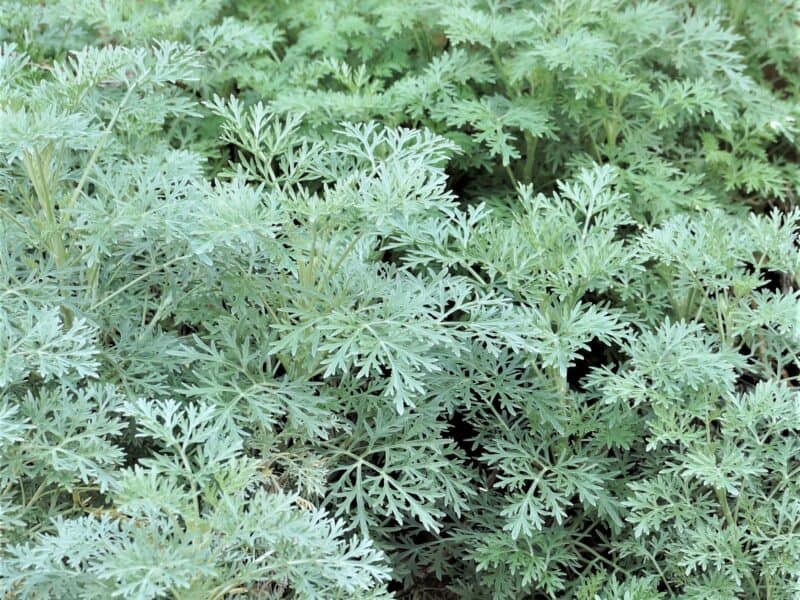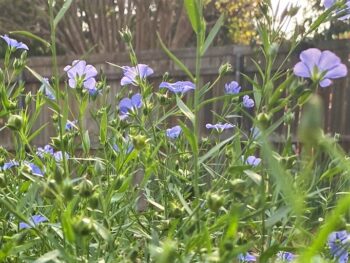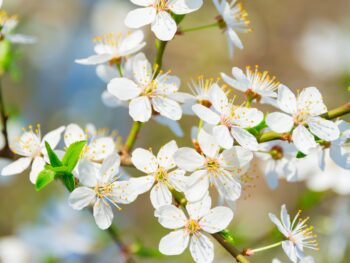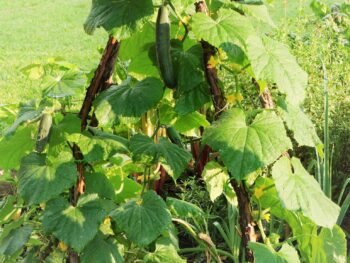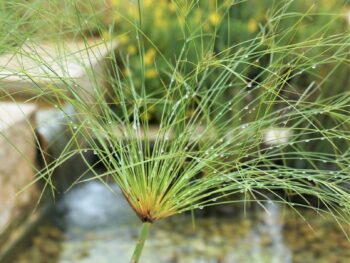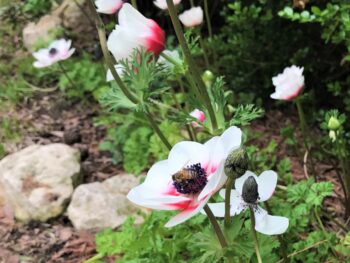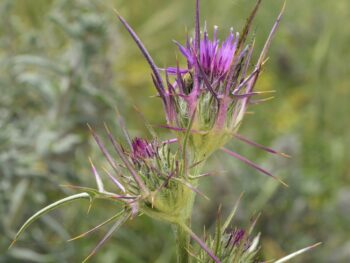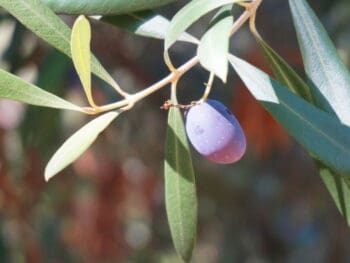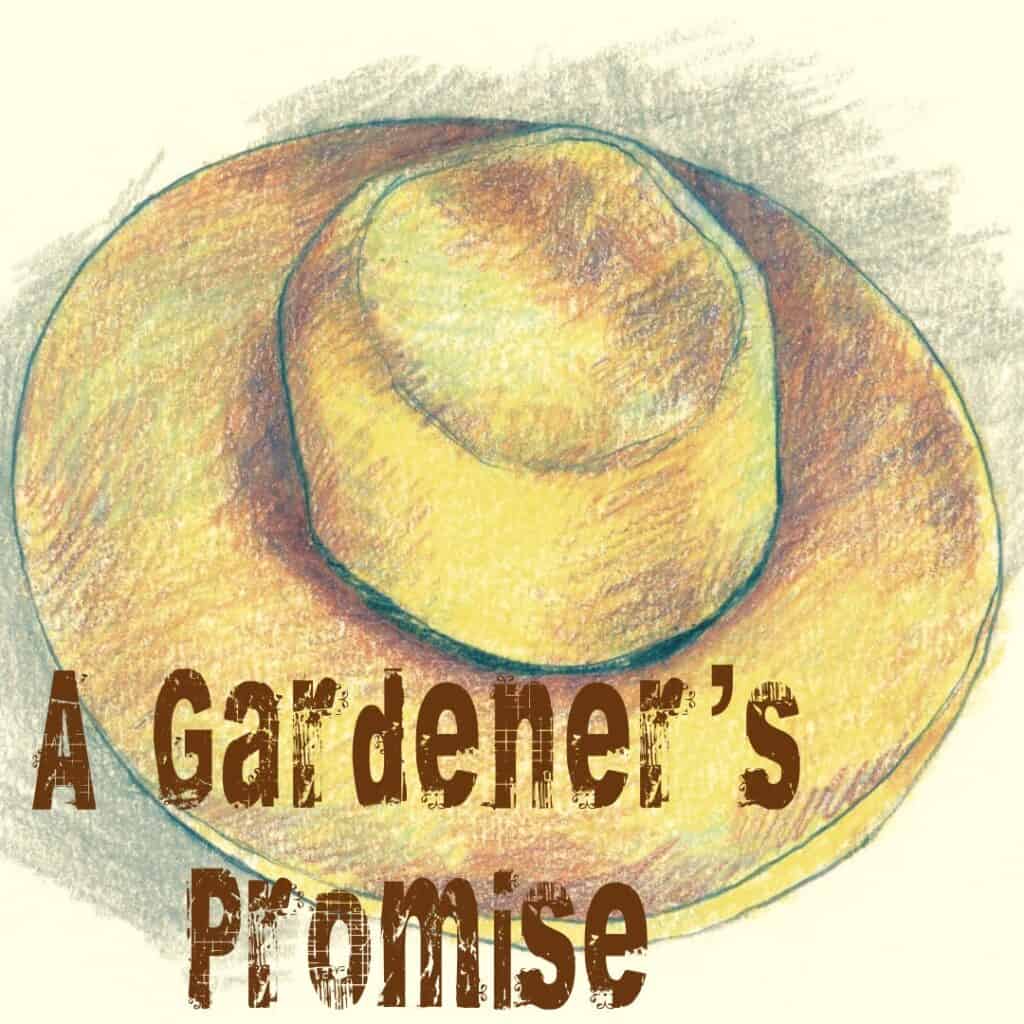
While weeding is generally considered part of the cultivating work of keeping a garden, the practice has a nuance all to itself: Warning! Weeds may seem to be innocent seedlings minding their own business; some gardeners are deceived that these are simply “plants considered undesirable in their present location.”* Yet weeds are a real threat to a thriving, well-watered garden, and weeding is a well-suited metaphor to the spiritual battle into which we are born. If you are unaware of or not yet battle-ready for the constant combat between good and evil affecting the earthly realm, this chapter is for you. Let wormwood summon your attention!
Chapter 12 Weeding & Wormwood
My Father is the Gardener explores weeding alongside ground covered by wormwood, a plant with an equivocal warning message in the Bible: Do not turn your heart away from the Lord your God to other gods (from Deuteronomy 29:18). As in pruning, we are called to grasp a higher level of know-how in discerning sprouted weed from wanted seedling, and a greater trust in the Lord for endurance, diligence, and a weaponized prayer life. The best stature for these devotions? On our knees, as garden writer Helena Rutherford Ely would recommend.
Click here to buy My Father is the Gardener
Wormwood
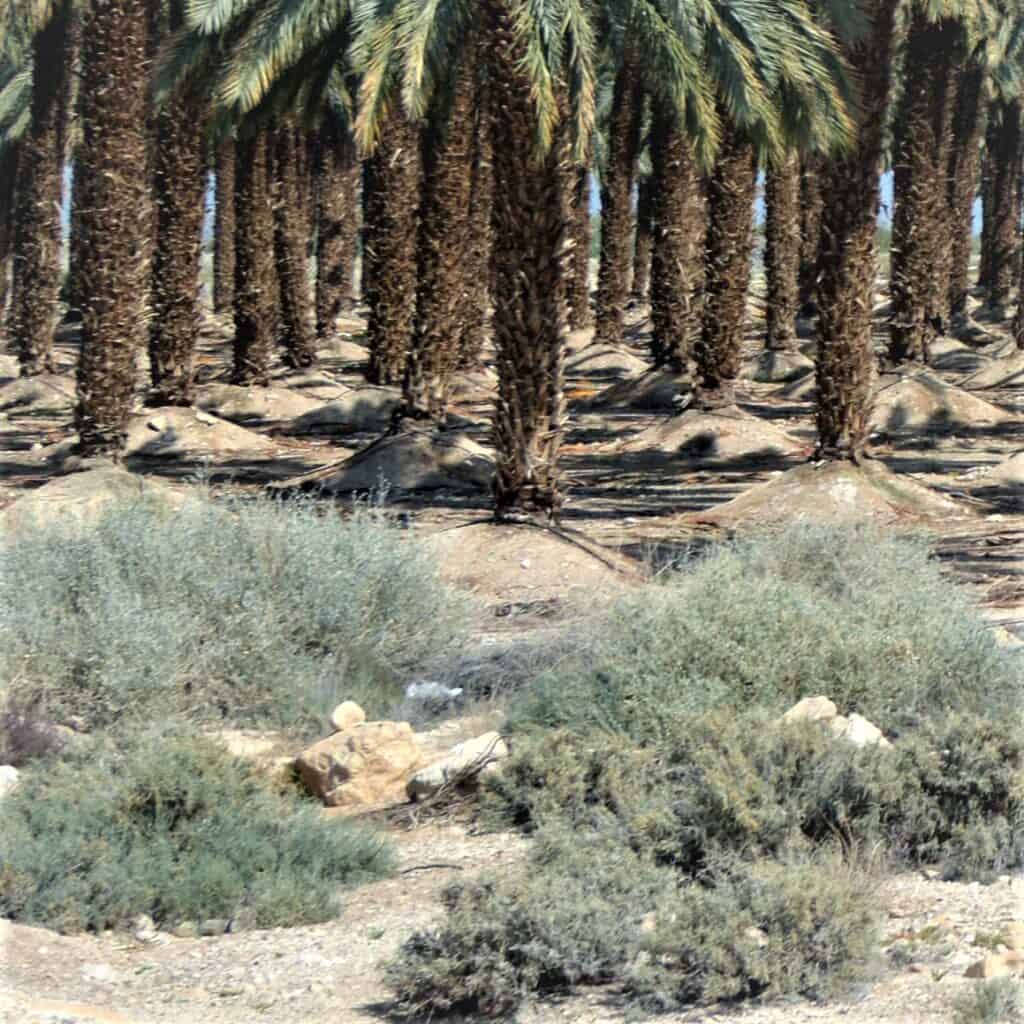
Wormwood from the Holy Land, Artemisia judaica, would be rare in our gardens today, pictured here next to a date palm plantation in Israel. However, you may be familiar with some of these species from the Artemisia genus: A. abrotanum, southernwood; A. tridenta, sagebrush; A. dracunculus, wild tarragon; Artemisia ‘Powis Castle;’ A. ludoviciana, ‘Silver King.’ Though they carry a warning message and an association with bitterness, Artemisia plants are all lovely in the landscape with the eye-catching foliage. Their silvery color sets them apart from verdant hedges, and their texture is lacey and soft compared to that of woody, stiff-leafed shrubs. They gently fill in and surround garden plants with an airy, soothing habit, shading the soil to protect against weeds. They endure rainless summers and hot sun better than most perennials, hardy to zone 8, maybe 7. Wormwood is coming soon to the Plant Guide
click here for a printable PDF file of Weeding & Wormwood Journal Questions
Journal Questions Chapter 12
Follow along in Chapter 12 of My Father is the Gardener
…so that there will not be among you a man or woman, or family or tribe, whose heart turns away today from the Lord our God, to go and serve the gods of those nations; that there will not be among you a root bearing poisonous fruit and wormwood. Deuteronomy 29:18 NASB
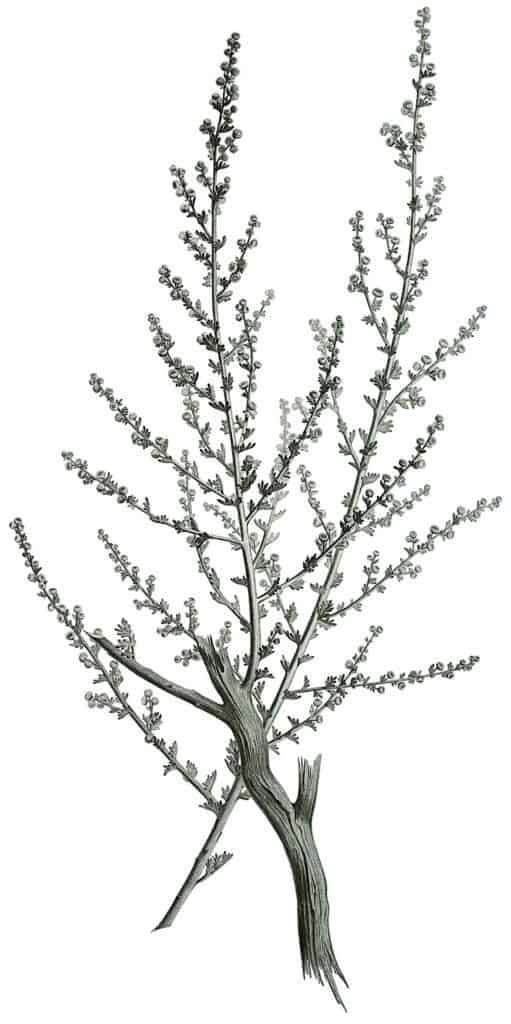
- Do you have any of the Artemisias growing in your garden, or have you seen them planted in a public garden? Describe your favorite characteristics of these plants:
- Picture wormwood’s distinctive coloring—silvery, gray-green—as it stands out against the usual green foliage of a garden. Do you see how this eye-catching quality and unique scent make it a good plant for a metaphorical warning?
- What does God warn us about with the mention of wormwood?
- Write a prayer of devotion to God; turn your heart to Him in worship:
All bitterness, and rage, and wrath, and clamor, and abusive speech, must be removed from you, together with all wickedness. Become kind toward one another, compassionate, forgiving one another, just as also God in Christ has forgiven you. Ephesians 4:31–32 LEB
- Describe your approach to weeding. Are you diligent, obsessed, or could you care less? Are you serious about removing them or haphazard?
- How many years have you been keeping your garden? Have you come into some routine practices and methods over the years to combat weeds?
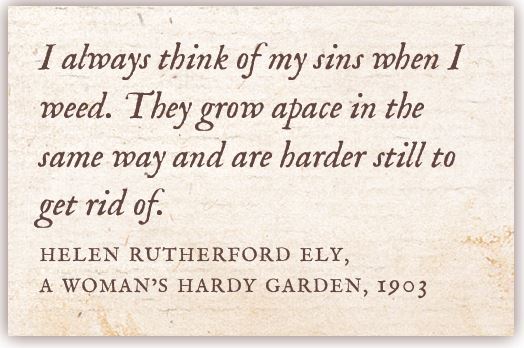
- Let’s explore this metaphor. Do you think God is haphazard about removing your “weeds,” or serious?
- Re-read Ephesians 4:31, James 1:21, 1 Peter 2:1, and Colossians 3:1. This is not a trick question: The Lord is serious! Why do you think He is so intent?
- Now that you grasp His logic, give Him permission to “weed” your thoughts and attitudes:
- Praise Him for His power to transform you; “weeding” our character is not a matter of our strength, but His:
You can have no part or share in God’s word because your heart isn’t right with God. Therefore, change your heart and life! Turn from your wickedness! Plead with the Lord in the hope that your wicked intent can be forgiven, for I see that your bitterness has poisoned you and evil has you in chains.” Simon replied, “All of you, please, plead to the Lord for me so that nothing of what you have said will happen to me!” Acts 8:21–24 CEB
- Garden writer Ervin L. Denisen wrote that after initial weeding, “additional weed control is usually needed (page 167).” Write in your own words how this is a spiritual metaphor:
- Write Psalm 139:24 in your own handwriting:
- Do you see this Scripture as a continual request to make to the Lord? Simon realized his weed-full ways and asked those who corrected him to pray for him. King Solomon also prayed for the people who were willing to turn from their wrongdoing and return to the Lord. Have you asked anyone to pray for you for matters needing weeding? If not, name someone you know whom you would like to ask:
For although we do live in the world, we do not wage war in a worldly way; because the weapons we use to wage war are not worldly. On the contrary, they have God’s power for demolishing strongholds. We demolish arguments and every arrogance that raises itself up against the knowledge of God; we take every thought captive and make it obey the Messiah. 2 Corinthians 10:3–5 CJB
- Have you been taught about spiritual warfare?
- What is the weapon we wage (2 Corinthians 10:3); what is the sword that we have (Ephesians 6:17)?
Gardeners, wake up!! Knowing and becoming endeared to the Word of God will arm us all for this battle!
- Read Luke 6:47-48. What happens to us in a spiritual storm when we are built on God’s practical Words?
- Praise God you are still standing! Parade in your wellies and praise him for making a way to never be separated from Him (Romans 8:39):
You, Lord, are to be blessed! Teach me your statutes. I will declare out loud all the rules you have spoken. I rejoice in the content of your laws as if I were rejoicing over great wealth. I will think about your precepts and examine all your paths. I will delight in your statutes; I will not forget what you have said. Psalm 119:12–16 CEB
- Are you familiar with ground cover plants? This is a gardening term for low-growing plants that spread and sprawl, shading bare soil, which helps prevent weeds. Wormwood and Artemisias are particularly helpful as groundcovers in the garden. List other plants you grow as groundcover:
- God does not command us to keep his Words to be bossy, but because he is a Gardener! He knows a heart covered by his Word will flourish weed-free. Does God’s plan for “weed prevention” now make more sense to you? Write a praise to God for providing good heart-cover in a “weedy” world, that is, a world full of damaging and invading ideas, lies detrimental to our good growth:
- Read back through the Scriptures in chapter 12 and write the ones that particularly move you and inspire you to turn to Him with all your heart:
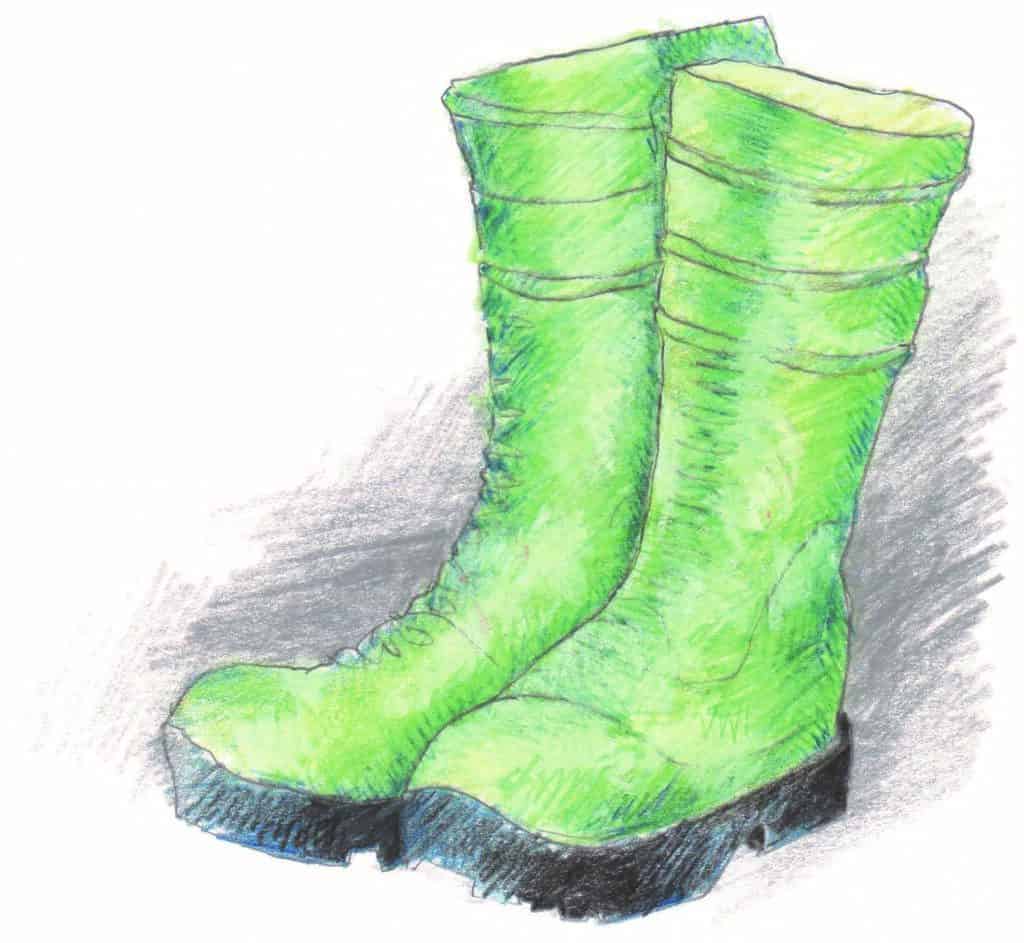
Closing Prayer
O wonderful Lord, thank you! Once again you have taught me so much with your Words, and prepared me to flourish in You. You have given me great weapons to fight the spiritual battle I have been born into, and even a weedy garden works for good to ground me in the reality of this battle. Prompt me to turn my “plowshares” into swords when needed; that is, alert me in my earthwork to decree your Words and release them into the spiritual realm at the right time. Thank you that growing in You and getting to know you more and more replants all my bitterness with your sweet love. I open my heart to your transformation, and I hope in You to send people to pray for me. Amen.
Listen, Israel: The Lord our God, the Lord is One. Love the Lord your God with all your heart, with all your soul, and with all your strength. Deuteronomy 6:4-5 HCSB
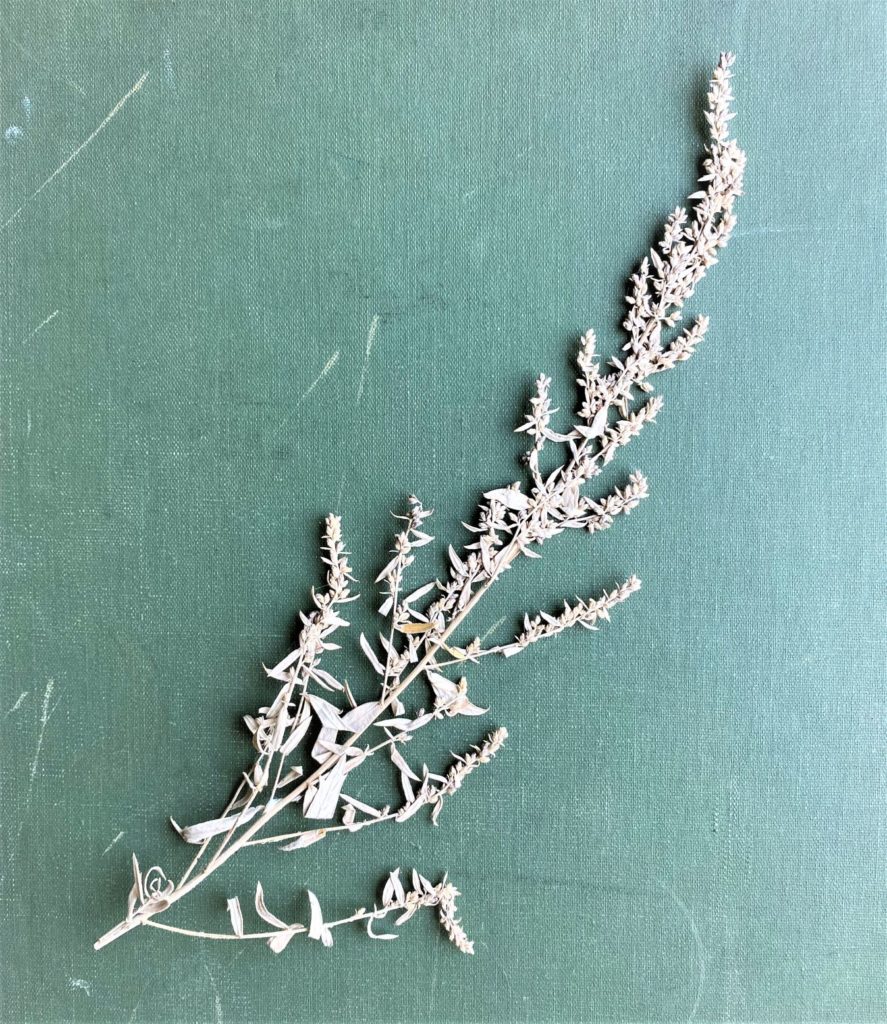
*quoted from William Alexander, The $64 Dollar Tomato, and discussed in My Father is the Gardener, page 168-69 and see End Note 28 on page 221

A Gardener’s Promise explores God’s forever-with-you devotion to us. More than a casual sentiment, God’s love is an enriching commitment to dig into everything together, a promise to hang your hat on. Part journal questions, part planting guide, this 7-part series has been created as a companion to My Father is the Gardener, Devotions in Botany and Gardening of the Bible, a way to work out God’s profound assurance in the backyard, arriving at Resurrection Day with a deeper grasp of what Christ has for us in revival life.
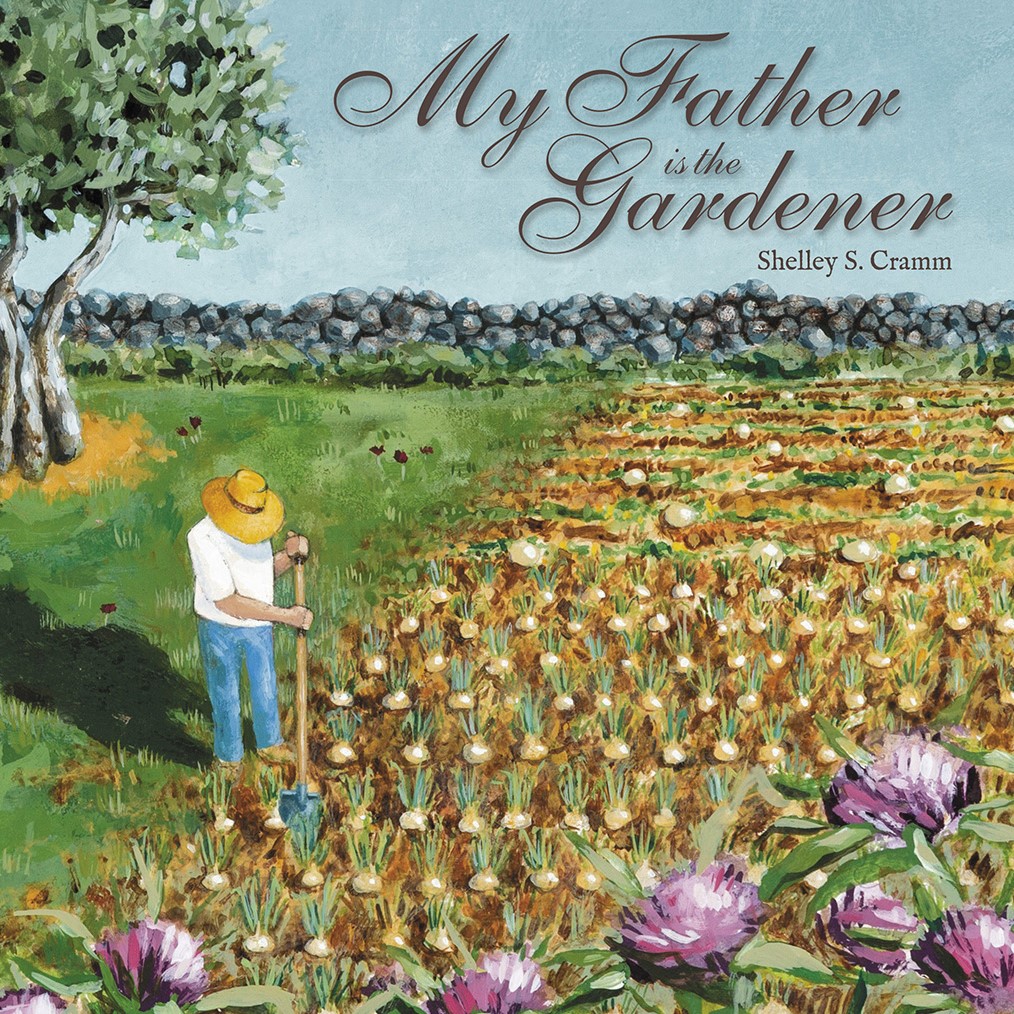
Enjoy Shelley’s latest book, a perfect study for Lent and the herald of spring. My Father is the Gardener digs into the plants, gardening, and landscapes of the Bible, unearthing inspiration in the routine ways of caring for plants and keeping a garden. Now available at BRIT Press, Powell’s Bookstore, and Amazon. Click to order: www.gardenindelight.com/books/my-father-is-the-gardener/
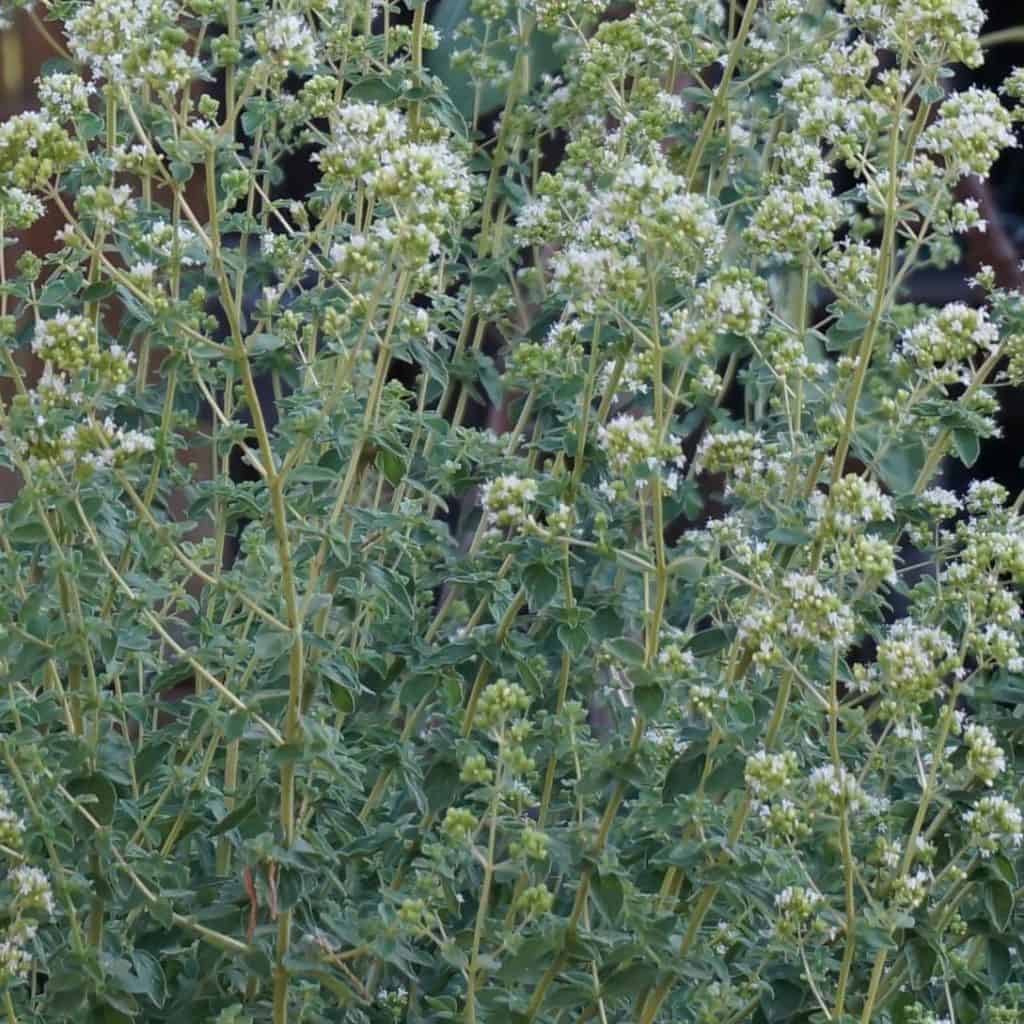
Find more devotions and plant information on wormwood in the Devotions Blog
Photo Credits: ©2015 Shelley S. Cramm Artemsia ‘Powis Castle’ is lovely in the home landscape, a gesture to wormwood of the Bible; Gardener’s Hat drawing by Layla Luna; © Rafael Ben Ari | Dreamstime.com, Photo 54829592 / Tree, probably Judean wormwood growing next to a Date Palm plantation at Ein Gedi, near the Dead Sea in Israel; Branches from Raffeneau-Delile, Alire. Flore d’Egypte, Explanations des Planches. Vol. 3. (Paris: Imprimerie Impériale, 1813) Plate 43-3. Image from Peter H. Raven Library, Missouri Botanical Garden, accessed at www.botanicus.org/item/31753002794425; Wellies by Layla Luna; ©2021 Shelley S. Cramm dried branch of A. tridenta from the American west. All drawings by Layla Luna created exclusively for My Father is the Gardener are copyrighted material. For copyright permission, please contact Shelley S. Cramm, shelleycramm@gardeninDelight.com
CEB notes Scripture quotations taken from the Common English Bible © 2011 Common English Bible, Nashville, Tennessee. All Rights Reserved. The CEB translation was funded by the Church Resources Development Corp, which allows for cooperation among denominational publishers in the development and distribution of Bibles, curriculum, and worship materials.
CJB notes Scripture quotations taken from the Complete Jewish Bible by David H. Stern. Copyright © 1998. All rights reserved. Used by permission of Messianic Jewish Publishers, 6120 Day Long Lane, Clarksville, MD 21029. www.messianicjewish.net.
HSCB denotes Scripture quotations taken from the Holman Christian Standard Bible®, Copyright © 1999, 2000, 2002, 2003, 2009 by Holman Bible Publishers. Used by permission. Holman Christian Standard Bible®, Holman CSB®, and HCSB® are federally registered trademarks of Holman Bible Publishers.
LEB denotes Scripture quotations taken from the Lexham English Bible. Copyright 2012 Logos Bible Software. Lexham is a registered trademark of Logos Bible Software.
NASB denotes Scripture quotations taken from the NEW AMERICAN STANDARD BIBLE®, Copyright © 1960,1962,1963,1968,1971,1972,1973,1975,1977,1995 by The Lockman Foundation. Used by permission.
NLT denotes Scripture quotations taken from the Holy Bible, New Living Translation, copyright © 1996, 2004, 2015 by Tyndale House Foundation. Used by permission of Tyndale House Publishers, Inc., Carol Stream, Illinois 60188. All rights reserved.

